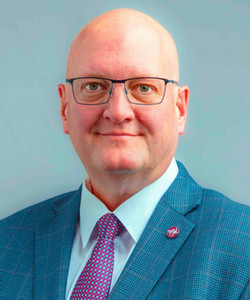Message from the Dean
/https://siu.edu/search-results.php
Last Updated: Apr 16, 2025, 02:33 PM
 The liberal arts tradition in academia is central to its history as well as what makes it relevant today. The definition of the liberal arts began in the western tradition with the trivium (grammar, logic, and rhetoric) and eventually added the quadrivium (arithmetic, geometry, music, and astronomy). All that to say that the original conception of the liberal arts is that it is a collection of knowledge that foster freedom (liberare—"to set free”) in the citizenry. I am a strong proponent of the liberal arts because it is one of the most important mechanisms for educating the whole person who will become an active participant in a democracy.
The liberal arts tradition in academia is central to its history as well as what makes it relevant today. The definition of the liberal arts began in the western tradition with the trivium (grammar, logic, and rhetoric) and eventually added the quadrivium (arithmetic, geometry, music, and astronomy). All that to say that the original conception of the liberal arts is that it is a collection of knowledge that foster freedom (liberare—"to set free”) in the citizenry. I am a strong proponent of the liberal arts because it is one of the most important mechanisms for educating the whole person who will become an active participant in a democracy.
Having taught in the liberal arts throughout my career in higher education (over 25 years now), I know first-hand how we must continue to make the case for the value and relevancy of the liberal arts and humanities: they are central to the role of an undergraduate education. Students will likely not realize it until a few years after they graduate, but the exposure they received to diverse ideas, philosophies, research methods, and writing practices within the humanities and social sciences will be foundational to how they take up and interact in the twenty-first century. Such preparation is not antithetical to workforce preparation; rather, it is vital to it because a liberal arts education assumes a dynamic environment, one that necessitates the ability to adapt to constantly shifting, and often unpredictable, changes in the global economy.
Educators help students succeed in such a creative economy by encouraging independent, imaginative, and critical thinking. Business leaders tell us that what they need from higher education are workers who can problem-solve, communicate well across difference, take the initiative, and innovate. Liberal arts students can also be leaders in helping to navigate diverse, sometimes marginalized, perspectives. Working in teams, collaborating, and drawing out the best in each of us are also important outcomes of a liberal arts education.
The College of Liberal Arts at SIU pulls together six schools on campus: the School of History and Philosophy; the School of Anthropology, Political Science, and Sociology; the School of Communication Studies; the School of Literature, Writing, and Digital Humanities; the School of Africana and Multicultural Studies; and the School of Languages and Linguistics. All of these experts in these schools endeavor to help students become more than the sum of our disciplines: they also become citizens ready to participate—ready to create, think independently, and innovate for a better society. As Dean, I am fortunate to be a part of this community, providing support where I can.
As Nelson Mandela once said, “A good head and a good heart are always a formidable combination.” In the liberal arts, we deliberately require both of students and faculty.
- Dean Joddy Murray, College of Liberal Arts